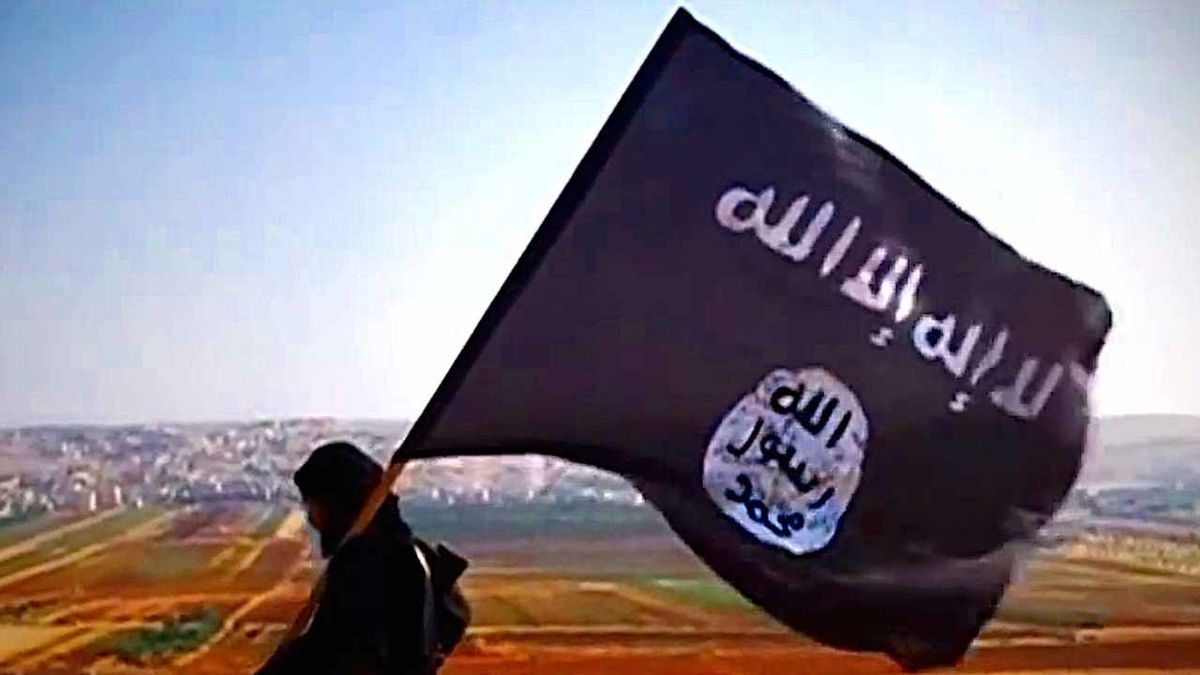JAKARTA - On October 27, 2019, ISIS leader Abu Bakr al-Baghdadi was killed along with his three children by detonating a suicide vest. The suicide was carried out during Operation Barisha which was carried out by the United States (US) after obtaining approval from US President Donald Trump. The operation was carried out in the province of Idlib, Syria.
Al-Baghdadi's body was buried in the sea by the US. Previously the US did the same thing to the body of Al-Qaeda leader Osama Bin Laden. Osama Bin Laden was shot dead during an operation in Pakistan in 2011.
US Army General and Joint Chiefs of Staff Mark Milley said the US military buried Baghdadi's body at sea. They claim it was done "in an appropriate manner, in accordance with our standard operations and in accordance with the laws of armed conflict."
Abu Bakr al-Baghdadi took control of ISIS in 2010. At that time few people knew about the terrorist organization. Al-Baghdadi at that time was known as a strict religious scholar with wire-frame glasses and had no talent for war and killing.
But four years later, al-Baghdadi turned his failed movement into one of the most notorious, ruthless and successful terrorist groups of modern times. Under the leadership of al-Baghdadi, the presence of ISIS was recognized as an organization that would control all cities in Iraq and Syria. Since then ISIS has become a byword.
Citing the Washington Post, al-Baghdadi also embraced the extreme brutality that became the "trademark" of ISIS. While his predecessors gained notoriety with beheadings and bombings of school playgrounds, al-Baghdadi enjoyed violent shows that are often the subject of videos.
His followers carried out mass crucifixions, turned female captives into sex slaves, and gleefully executed prisoners by stoning or burning them alive. It is said that this was always with al-Baghdadi's implicit blessing.

But his image among his followers took a hit when the US-led military coalition began to oust ISIS. It started in western Iraq in 2015 and continued in a relentless series of defeats that included the fall of the Iraqi and Syrian capitals in 2017 and 2018.
In March 2019, the once vast area of al-Baghdadi's leadership was destroyed by Kurdish fighters backed by US warplanes. Through it all, al-Baghdadi became increasingly invisible, drawing criticism from within his own organization for being ineffective as a leader.
After his leadership collapsed, he appeared twice in video messages, insisting that ISIS was rebuilding itself as an underground insurgent and vowing to keep fighting. Indeed, ISIS at the time had an estimated 14,000 to 18,000 members, while escalating low-level guerrilla warfare targeted Iraq, Syria and the Kurds in the months of 2019, precisely before al-Baghdadi's death.
On October 23, 2019, US special operations forces carried out an offensive operation in Barisha, Idlib Province, Syria. The target of the attack was al-Baghdadi, even though the area was hundreds of kilometers from where he was believed to be hiding.
US President Donald Trump later said that al-Baghdadi retreated into the tunnel with his three children during the attack, then detonated a suicide vest when US military dogs detected him. The explosion killed himself and the children.
"A brutal murderer, who has caused so much trouble and death, was cruelly removed. He will never again harm an innocent man, woman or child," Trump said, citing the BBC.
"He died like a dog. He died like a coward. The world is now a much safer place," Trump added.

Al-Baghdadi's death was initially claimed to weaken ISIS. But in 2020, the Defense Intelligence Agency (DIA) and US Central Command (CENTCOM) assessed that Abu Bakr al-Baghdadi's death did not disrupt the group's command structure or operations. This is according to a report from the US Department of Defense inspector general.
"USCENTCOM and DIA both assess that al-Baghdadi's death in October did not result in an immediate degradation of ISIS capabilities," the Pentagon report said.
"USCENTCOM told DoD OIG that after the death of ISIS leader Abu Bakr al-Baghdadi, the group's capabilities in Syria remain the same."
But Central Command also reported that ISIS "has not significantly advanced its insurgency" and has struggled to attack US or coalition forces. ISIS has had more success with low-level attacks against local governments and Kurdish forces in Iraq and Syria.
*Read other information about TODAY's HISTORY or read other interesting articles from Putri Ainur Islam.
TODAY'S HISTORY MoreThe English, Chinese, Japanese, Arabic, and French versions are automatically generated by the AI. So there may still be inaccuracies in translating, please always see Indonesian as our main language. (system supported by DigitalSiber.id)









